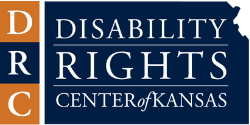
There are signs on almost every street corner; information is sent to you in the mail, and you see commercials advertising: “We Buy Houses!”. Many of these companies are SCAMS trying to take advantage of you.
How do these scams work?
When a homeowner calls the company to sell their home, the homeowner will often be convinced to sign over the deed to their home based only on the company’s promise to sell their home. In return, the homeowner receives little or no money upfront. The company can then lease or sell the property to a 3rd party. As a result, the former homeowner loses rights to their home, has no place to live, doesn’t receive compensation for the true value of their home, and is still held responsible for making the mortgage payments.
Before contacting a "We Buy Houses" company, keep the following in mind:
|
|
-
- These companies are not likely to pay cash for your home or help secure a fast payoff on your current mortgage.
-
- It could take several years to sell your home using this process if your home is sold at all.
-
- Beware of anyone who asks you to sign over the title to your home based only on their "promise" to sell your property. Work with a real estate or leasing agency you trust.
-
- If you're struggling to pay your mortgage, speak with your lender first to ask about other possible solutions, such as a loan modification.
|
|
|
|
|
Additional tips to protect your home:
|
|
-
- Speak with a U.S. Department of Housing and Urban Development (HUD) certified housing counselor. Free counseling is available (or at a low cost based on your income). Ask for a face-to-face interview rather than by telephone. To locate a housing counselor near you, call (800) 569-4287 or go to: www.hud.gov/offices/hsg/sfh/hcc/hcs.cfm
-
- Make sure you have money to pay your real estate taxes and insurance on your home every year. You are responsible for both expenses and could lose your home if you do not pay them. This is the biggest cause of foreclosures!
-
- Work with a reputable lender. Check their listings with the Better Business Bureau at www.bbb.org
-
- Shop around. Scammers will lie and falsely claim they are the only lender you should speak with. Ignore the scammers and contact at least 3 reputable lenders instead.
-
- Attend the closing personally and make sure any proceeds are given to you and not someone else.
-
- If you do not understand why you are signing papers, talk with an attorney, trusted friend, or family member. Contact the DACVU if you think you are being scammed.
|
|
|
|
Already been scammed? Here are steps you can take:
|
|
-
- You can file a complaint with the HUD Office of Inspector General to request an investigation: www.hudoig.gov/report-fraud
-
- You can make a report with the Federal Bureau of Investigations (FBI) by phone at (800) 225-5324 or online at www.tips.fbi.gov
-
- You can file a complaint with the Kansas Attorney General to request an investigation at www.ag.ks.gov/complaint-center
-
- You can file a complaint with the Better Business Bureau at www.bbb.org
-
|
|
|
|
|
|
|
|
|
Our team understands how these scams affect people with disabilities and seniors. We are here to help you understand your rights and get the resources you need. Contact the Disability & Aging Crime Victims Unit (DACVU) to request assistance. The DACVU is a program of the Disability Rights Center of Kansas.
.png)






